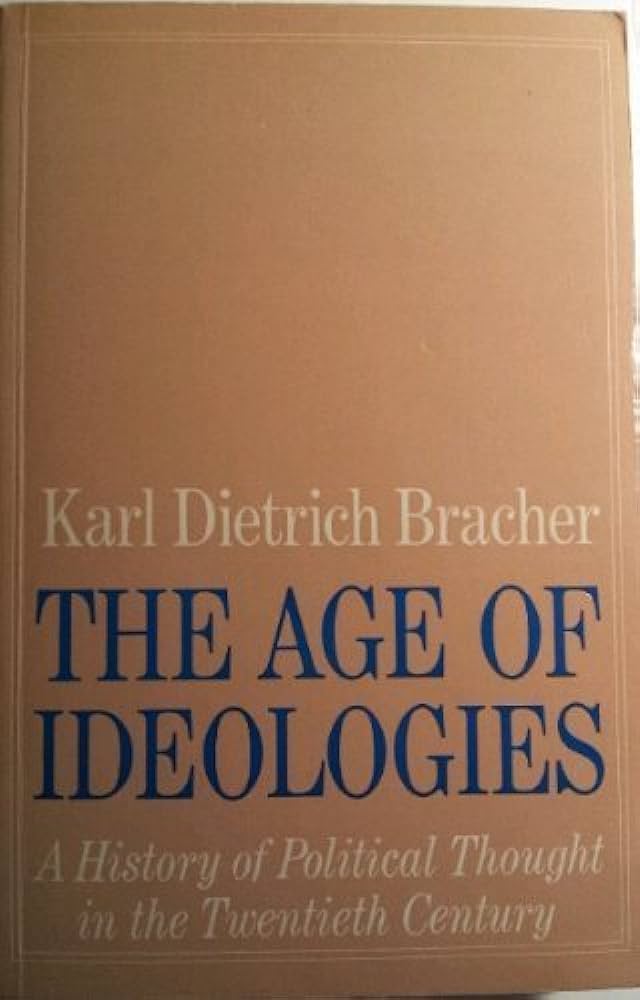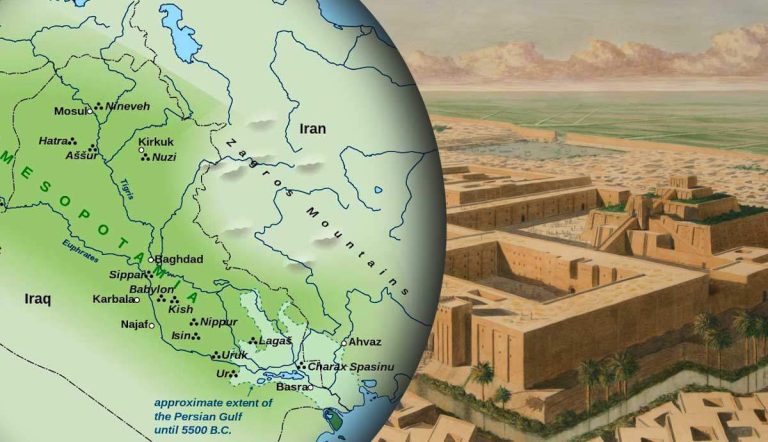World History An Age Of Ideologies
World History: An Age of Ideologies is a comprehensive overview of the world’s major ideologies, beginning in the nineteenth century and exploring their development and impact on the world today. It covers the major ideologies of the twentieth century, including communism, fascism, liberalism, conservatism, socialism, and anarchism. Additionally, it takes an in-depth look at nationalism, democracy, and globalism and how they have shaped the modern world. It examines the political, social, economic, and cultural influences of each of the ideologies and how they have changed over time. The book also explores the effects of ideology on international relations, and on the global economy. Finally, it provides an overview of the major challenges facing the world today, and how these ideologies may help or hinder the solutions to those challenges.
The Origins of Ideologies
The concept of ideologies has been around for centuries, yet they are more relevant than ever in today’s world. Ideologies are a set of beliefs and values that shape how individuals, groups, and societies understand and interact with the world. From the Enlightenment to the World Wars, ideologies have had a profound impact on how individuals, groups, and nations interact with each other.
The seeds of ideologies can be traced back to the early Enlightenment period, when the concept of democracy began to emerge. During this era, political and philosophical thinkers began to challenge the traditional social and political structures. This led to the emergence of new ideas, such as the theory of natural rights and the idea of government based on popular consent.
The French Revolution of 1789 is often cited as the beginning of the modern era of ideologies. During this period, radical and revolutionary ideas such as the abolition of slavery, the right to vote, and the separation of church and state began to spread across Europe. This revolution also gave birth to the utopian ideals of socialism, communism, and anarchism.
The 19th and 20th centuries saw the emergence of the ideologies of liberalism, conservatism, and nationalism. These ideologies were often used to justify the actions of powerful nations and empires. During the World Wars, these ideologies were used to justify imperialism and militarism.
The Age of Ideologies has shaped the world we live in today. From the Enlightenment to the World Wars, ideologies have had a profound impact on how individuals, groups, and nations interact with each other. The current rise of populism and nationalism around the world is yet another example of the power of ideologies. As we move into the future, the power of ideologies will continue to shape our world.
The Spread of Ideologies
Throughout the ages, ideologies have been a driving force of human civilization. From ancient Greece and Rome to the modern era, ideologies have been the basis of political, social, and economic development. Whether it be the ideas of Plato and Aristotle in ancient Greece, the Protestant Reformation in Europe, or the spread of communism and capitalism around the world, ideologies have been a powerful influence on the evolution of humanity.
In the modern age, the spread of ideologies has been even more profound. Thanks to increased globalization, the world is more interconnected than ever before. This has allowed for the spread of ideologies to happen at a much faster rate. Ideas can now spread quickly across the world, leading to the development of new and different ideologies. We can see this in the growing popularity of socialism, which has seen a resurgence in recent years.
This interconnectedness has also allowed for the development of new movements and ideologies. For example, the environmental movement has taken hold in many countries, leading to widespread changes in policies and practices. Similarly, the feminist movement has gained traction, leading to greater recognition of women’s rights and more gender equality.
Ideologies have been, and will continue to be, a powerful force in shaping the world. As people become more connected, the spread of ideologies will only accelerate. It is our responsibility to ensure that these ideologies are used to promote positive change and social progress.
The Impact of Ideologies on Society
Throughout history, ideologies have had a major impact on society. From the Enlightenment to the Great Depression, ideologies have shaped the way that governments, economies, and individuals interact with one another. With the rise of industrialization and globalization, ideologies have become increasingly complex and influential.
Ideologies are sets of beliefs that attempt to explain the world and provide solutions to problems. They can be used to analyze social, political, economic, and cultural issues. For example, capitalism, socialism, and communism are all ideologies that attempt to explain economic systems and provide solutions to economic issues. Each of these ideologies has had a major impact in shaping the economic systems of countries around the world.
Ideologies also shape the way individuals interact with each other. For example, liberalism and conservatism are two ideologies that attempt to explain individual beliefs about government and society. These ideologies can help explain why individuals support certain political candidates or causes.
In addition to influencing individual beliefs, ideologies can also shape laws and policies. For instance, the American Revolution was largely driven by the ideology of liberalism, which argued for the rights of individuals to be protected from oppressive government.
Ideologies have been used to explain and shape the world for centuries, and their impact continues to be felt today. By understanding how ideologies have influenced the past, we can better understand the present and take steps to shape the future.

The Influence of Ideologies on Politics
The 19th and 20th centuries have seen a dramatic shift in the way societies around the world think and act. The rise of ideologies such as liberalism, socialism, and conservatism have had a profound impact on politics and the way nations interact with one another. Liberalism is characterized by individual freedoms, markets, and the acceptance of diversity. Socialism is based on the idea of collective ownership of the means of production and the redistribution of wealth. Conservatism is based on tradition, stability, and the promotion of a moral order.
These ideologies have affected the course of world history in ways both positive and negative. On the one hand, they have provided a means for citizens to express their voice and advance their interests. On the other, they have caused divisions between nations and fostered a sense of competition. While the impact of ideologies on politics is undeniable, it is important to note that the effects are not always straightforward. Ideologies can be both a source of harmony and a cause of conflict.
Ideologies have also shaped the international system. For instance, the Cold War between the Soviet Union and the United States was largely a clash of competing ideological visions. The two countries had different visions for the world and used their power to promote their own models. The end of the Cold War and the collapse of the Soviet Union marked a major shift in the international system and the rise of a new set of ideological dynamics.
Ideologies continue to shape the world today, and it is important to understand their influence on politics. The tension between liberalism and conservatism, for example, is still apparent in many countries. In addition, the rise of populism and the debate over immigration and globalization demonstrate the impact of ideologies on politics. By understanding how ideologies have shaped the world and continue to do so, we can better understand our current political landscape and the challenges we face.
Religion and Ideologies
The history of the world is filled with many different ideologies, some of which are still practiced today. Religion is one of the most significant and influential ideologies in the world today. It has shaped the beliefs, values, and culture of many societies throughout history. Religion has had a powerful and lasting impact on human societies, with some of the most powerful and influential leaders being religious figures. The influence of religion on the world’s history has been both positive and negative, but it is undeniable that it has had an immense impact on the development of societies and cultures.
Religion has been an essential part of life for many people throughout history and its influence has often been seen in the political and social realms. Many of the world’s greatest ideologies have been based on religious beliefs and values, such as the ideologies of Confucius, Christianity, and Islam. Religion has also been used as a tool for creating unity and a sense of identity among people, as well as for promoting peace and harmony.
At the same time, religion has been used to justify violence, oppression, and discrimination throughout history. It has also been used to suppress religious minorities and to divide people along religious lines. Despite these dark aspects of religion, it remains one of the most powerful and influential ideologies in the world today, and its impact on world history is undeniable.
The Legacy of Ideologies in World History
Ideologies have been a defining force in world history and have shaped the development of nations and civilizations. From the ancient Greeks to the modern-day United States, ideologies have been a driving force for change. In fact, the entire course of world history could be seen as a battle between ideologies, with each side vying for control and dominance. In this article, we will explore the legacy of ideologies in world history and how they shaped the development of nations and civilizations.
We will start by looking at the origins and development of the major ideologies. We will then examine how they have influenced politics, economics, and culture throughout history. We will also explore how different nations have adopted and adapted the ideologies to their own circumstances. Finally, we will look at the impact of ideologies on the modern world and the future of nations and civilizations.
By examining the legacy of ideologies in world history, we can gain insight into the development of nations and civilizations throughout the ages. We can also gain a better understanding of the current state of the world and how different ideologies have shaped our current reality. It is only by understanding the past and its legacy that we can properly prepare for the future.
FAQs About the World History An Age Of Ideologies
Q: What is the main focus of World History An Age Of Ideologies?
A: World History An Age Of Ideologies is an interdisciplinary course that explores the development of ideologies in the 19th and 20th centuries and their impact on world history. The course focuses on the major political, economic, and cultural ideologies of this era, including liberalism, socialism, fascism, and communism.
Q: What topics are covered in World History An Age Of Ideologies?
A: World History An Age Of Ideologies covers a range of topics, including the development of major ideologies in Europe and beyond, the effects of colonialism and imperialism, the rise of nationalism, and the emergence of global conflicts. Other topics include the emergence of the Cold War and its implications for the world, as well as the development of the global economy.
Q: What types of activities are included in World History An Age Of Ideologies?
A: World History An Age Of Ideologies includes a variety of activities to help students understand the development of ideologies in the 19th and 20th centuries and their impact on world history. These activities include lectures, readings, discussions, debates, group work, and research projects.
Conclusion
World History: An Age of Ideologies has shown us that ideologies have been a powerful force in shaping the course of history. From the ancient civilizations of Mesopotamia and Egypt to the modern world, ideologies have played a pivotal role in determining the political, social, and economic systems of nations. We have seen how different ideologies have shaped the rise and fall of empires, and how they have been used to justify wars, social inequalities, and much more. Ideologies have also been used to foster progress and promote social change. As we look to the future, it is clear that ideologies will continue to be a major factor in our collective destiny.




